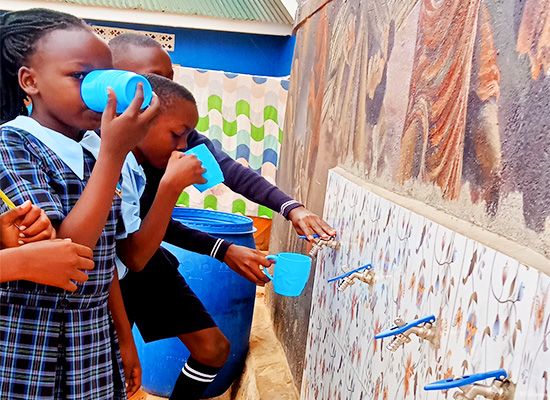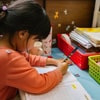The Critical Role of Safe Drinking Water
Studies show that schools with safe water and sanitation (WASH) facilities report higher attendance rates.
<p><strong>The Critical Role of Safe Drinking Water in Primary Schools and Educational Institutions Across Uganda</strong></p><p><strong>Introduction</strong><br>Access to safe drinking water is a cornerstone of health, education, and development. In Uganda, where primary schools, secondary schools, nursery schools, and kindergartens form the backbone of the nation’s future, ensuring clean water is not just a necessity—it’s a lifeline. This article explores why safe drinking water is vital for Uganda’s schools, how it impacts learning outcomes, and actionable steps stakeholders can take to address this urgent need.</p><p><strong>Why Safe Drinking Water Matters in Ugandan Schools</strong><br>Uganda’s education system spans thousands of primary schools, secondary schools, and early childhood centers (nurseries and kindergartens). Yet, many lack access to clean water, jeopardizing student health and academic performance.</p><figure class="image"><img src="/media/program-3_ZM4IQkD.jpg"></figure><p><strong>Health and Hygiene</strong><br>Contaminated water exposes children to waterborne diseases like cholera, dysentery, and typhoid. In primary schools, where young learners spend hours in crowded classrooms, outbreaks can lead to mass absenteeism. Nursery schools and kindergartens, catering to children under five, face even higher risks due to weaker immune systems.</p><p><strong>Improved Attendance and Performance</strong><br>Studies show that schools with safe water and sanitation (WASH) facilities report higher attendance rates. For example, girls in secondary schools often miss classes during menstruation if clean water and toilets are unavailable. Reliable water access ensures all students—from kindergarten to secondary—stay healthy and focused.</p><p><strong>Long-Term Development</strong><br>Healthy students become productive citizens. Investing in water infrastructure for Uganda’s schools aligns with Sustainable Development Goals (SDGs), fostering economic growth and equity.</p><p><mark class="pen-red">Challenges Facing Ugandan Schools</mark><br>While progress has been made, gaps persist:</p><p><strong>Rural Disparities</strong>: Rural primary schools and nursery schools often rely on unsafe wells or distant water sources.</p><p><strong>Aging Infrastructure</strong>: Many secondary schools struggle with broken boreholes or pipes.</p><p><strong>Climate Vulnerability:</strong> Droughts and floods disrupt water access, especially in arid regions.</p><p><mark class="pen-green">Solutions for Clean Water in Ugandan Schools</mark><br><strong>WASH Programs</strong><br>Integrating Water, Sanitation, and Hygiene (WASH) education into curricula empowers students. For example, teaching handwashing in kindergartens reduces disease transmission. NGOs like UNICEF and WaterAid partner with Ugandan schools to install rainwater tanks and latrines.</p><p><strong>Government Initiatives</strong><br>Uganda’s National Water Policy prioritizes school water access. Programs like the Uganda Water and Sanitation Network (UWASNET) focus on equipping primary and secondary schools with sustainable solutions.</p><p><strong>Community Engagement</strong><br>Parents and local leaders play a key role. Community-led projects, such as building wells near nursery schools, ensure long-term sustainability.</p><p><mark class="pen-green">Success Stories</mark><br><strong>St. Kizito Primary School (Kampala):</strong> After installing a solar-powered borehole, absenteeism dropped by 40%.</p><p><strong>Nakaseke Secondary School:</strong> A partnership with NGOs provided water filters, improving health for 800+ students.</p><p><strong>The Way Forward</strong><br>To ensure every child in Uganda’s primary schools, secondary schools, and kindergartens thrives:</p><p><strong>Prioritize Funding:</strong> Allocate budgets for school WASH projects.</p><p><strong>Leverage Technology:</strong> Use solar pumps and filtration systems.</p><p><strong>Advocate for Policy:</strong> Strengthen enforcement of water quality standards.</p><p><strong>Conclusion</strong><br>Safe drinking water is not a luxury—it’s a right. For Uganda’s schools, from bustling urban kindergartens to remote rural primary schools, clean water unlocks potential, protects health, and paves the way for a brighter future. By addressing this crisis, stakeholders can ensure every child, teacher, and community thrives.</p>








Comments (0)
Leave a Comment